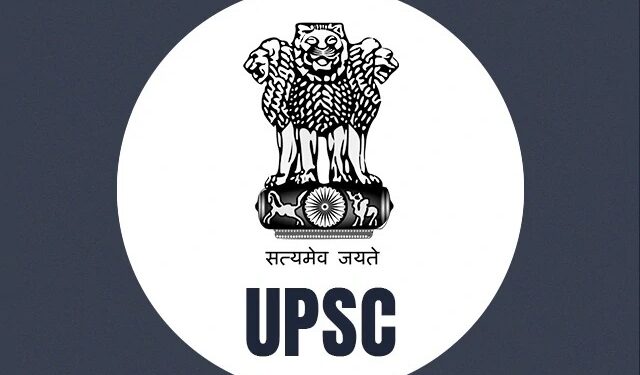Introduction
Best Tips To Embrace Failure In UPSC Preparation 2025 The journey to crack the UPSC exam is long, rigorous, and often filled with challenges. It demands intense dedication, immense perseverance, and a deep understanding of the subjects. However, no matter how hard you prepare, failure is often an inevitable part of the process. Whether it’s falling short in mock tests, struggling with concepts, or failing to clear a stage of the exam, facing failure during UPSC preparation is not uncommon.
But how you handle failure plays a significant role in your success. Instead of seeing failure as a setback, it can be a stepping stone that builds resilience, improves strategies, and makes you stronger in your pursuit of becoming a civil servant.
In this article, we will explore the best tips to embrace failure during UPSC preparation in 2025. We’ll cover how to cope with failure, learn from it, and keep moving forward. With the right approach, failure can become an invaluable part of your learning process, helping you become more focused, strategic, and prepared for future challenges. Let’s dive into the most effective strategies to deal with failure and turn it into a positive force in your UPSC journey.
1. Accept Failure as a Natural Part of the Process
One of the most important steps in embracing failure is accepting that it is an inherent part of the UPSC preparation journey. No one becomes successful without encountering failures along the way. The road to becoming a civil servant is not just about academic brilliance; it also tests your mental strength, patience, and ability to overcome obstacles.
Why It Matters:
- Normalizes the Struggle: Acceptance of failure prevents unnecessary self-doubt and stress. It helps you understand that failure does not define your ability but is merely a temporary setback.
- Prevents Frustration: When you realize that failure is a part of the process, it helps you stay calm and not become overly frustrated when things don’t go according to plan.
How to Accept Failure:
- Shift Your Perspective: Understand that failure is an opportunity for growth. It’s a chance to assess your mistakes, learn from them, and adapt your strategy.
- Reflect, Don’t Regret: Instead of dwelling on the failure, take time to reflect on what went wrong and how you can do better next time.
- Acknowledge Your Efforts: Be kind to yourself. You are working hard, and that in itself is an achievement. Every attempt is progress toward your goal.
2. Analyze the Root Cause of Your Failure
Failure doesn’t mean that you should give up, but rather that it’s an opportunity to identify areas where you need improvement. Analyzing your failure allows you to understand why you didn’t succeed and make the necessary adjustments.
Why It Matters:
- Unveils Mistakes: By identifying what went wrong, you gain clarity on your weaknesses. These insights help you focus your efforts on improving those areas, whether it’s a lack of understanding of a subject or poor time management.
- Improves Future Strategy: Failure gives you a chance to refine your strategy. Whether it’s adjusting your study timetable, changing your approach to certain subjects, or practicing mock tests more regularly, analysis helps you be more prepared in the future.
How to Analyze Failure:
- Review Your Performance: Look at your mock test results, answers, and feedback. Identify which subjects or sections caused trouble. Did you mismanage time? Were your concepts unclear?
- Seek Feedback: If you attended coaching classes or study groups, ask your mentors for feedback. A fresh perspective can reveal things you might have missed.
- Focus on Weak Points: Once you’ve identified your weaknesses, direct your attention to them. If you struggled with answer writing, practice more essays and GS papers. If current affairs were a problem, dedicate more time to reading newspapers and magazines.
3. Don’t Take Failure Personally
It’s easy to become disheartened and think that failure reflects your personal abilities or worth. However, this mindset is harmful and counterproductive. Remember that failing in an exam or mock test is not a reflection of who you are as a person.
Why It Matters:
- Reduces Stress: When you separate your self-worth from your academic performance, you reduce unnecessary pressure and emotional stress. This allows you to think more clearly and focus on the task at hand.
- Keeps You Motivated: If you take failure personally, it can kill your confidence and motivation. But when you realize that setbacks are a part of growth, you will be more motivated to continue working hard.
How to Keep Failure Impersonal:
- Affirmation: Remind yourself that failing an exam does not define you. Your worth is not based on your exam results but on your dedication and resilience.
- Avoid Comparison: Do not compare your failures with others’ successes. Everyone has their own journey and timeline.
- Learn, Don’t Blame: Don’t blame yourself for failing. Instead, see it as a learning opportunity to refine your approach.
Read more
4. Build Mental Resilience and Emotional Strength
One of the most important qualities that an IAS aspirant must develop is mental resilience. The UPSC exam is a marathon, not a sprint, and your ability to cope with emotional highs and lows will determine your success.
Why It Matters:
- Stamina for Long-Term Preparation: UPSC preparation is an extensive process that can take years. Building mental resilience ensures that you can endure long hours of study, overcome obstacles, and bounce back from setbacks.
- Emotional Stability: Emotional strength helps you deal with the pressures and anxieties that come with exam preparation. It keeps you calm when the going gets tough.Best Tips To Embrace Failure In UPSC Preparation 2025
How to Build Mental Resilience:
- Mindfulness and Meditation: Practice mindfulness techniques or meditation to help clear your mind, reduce stress, and focus on your goals.
- Set Realistic Expectations: Set achievable goals and milestones. Break down the journey into smaller tasks that are easier to manage.
- Stay Physically Active: Physical health contributes to emotional well-being. Regular exercise improves mood and energy levels, making you better equipped to handle stress.
- Seek Emotional Support: It’s okay to lean on family and friends for emotional support. Don’t hesitate to share your struggles with others.Best Tips To Embrace Failure In UPSC Preparation 2025

5. Develop a Growth Mindset
Embracing failure is easier if you cultivate a growth mindset—a belief that your abilities can be developed through dedication, hard work, and learning from experiences. People with a growth mindset see failure as a lesson to be learned, not as a permanent condition.Best Tips To Embrace Failure In UPSC Preparation 2025
Why It Matters:
- Encourages Continuous Learning: With a growth mindset, failure motivates you to find better ways to prepare. It drives you to study smarter and adopt more effective strategies.
- Promotes Persistence: Instead of being disheartened by failure, a growth mindset encourages you to try again, improve, and eventually succeed.Best Tips To Embrace Failure In UPSC Preparation 2025
How to Develop a Growth Mindset:
- Embrace Challenges: See every challenge, even failure, as an opportunity to grow and improve.
- Learn from Mistakes: Reflect on what went wrong and use those lessons to fuel future success.
- Celebrate Effort, Not Just Results: Focus on the process of learning and growing, rather than solely on the end result.Best Tips To Embrace Failure In UPSC Preparation 2025
Read more
6. Reframe Your Perspective on Failure
Often, failure is perceived as something negative, but reframing it as a stepping stone can change your entire outlook. Failure is not a sign of incompetence but an indication that you’re pushing yourself outside your comfort zone.
Why It Matters:
- Breaks Negative Patterns: When you reframe failure, you break the cycle of self-doubt and negative thinking, which can lead to better performance.
- Promotes Resilience: Viewing failure positively helps you stay resilient, knowing that each setback brings you closer to success.Best Tips To Embrace Failure In UPSC Preparation 2025
How to Reframe Failure:
- Focus on Growth: Rather than focusing on what went wrong, focus on what you can learn from the experience and how it helps you grow.
- Turn Failures into Lessons: Think of every failure as a lesson that improves your knowledge and skills. The more lessons you learn, the better prepared you will be.
- See It as Temporary: Remember that failure is not permanent. With continued effort, you will overcome it and achieve success.
7. Stay Consistent and Keep Moving Forward
Even after facing failure, the key to ultimate success is consistency. When you encounter a setback, don’t let it derail your entire preparation. Instead, keep moving forward, one step at a time.Best Tips To Embrace Failure In UPSC Preparation 2025
Why It Matters:
- Prevents Stagnation: Moving forward keeps you on track and helps you stay motivated.
- Builds Momentum: Small, consistent steps add up to big results over time, helping you maintain momentum and confidence.Best Tips To Embrace Failure In UPSC Preparation 2025
How to Stay Consistent:
- Follow a Structured Plan: Create a study timetable that balances all subjects and stick to it. Consistency is built through discipline.
- Track Your Progress: Regularly assess your progress and adjust your strategy. Recognize your improvements, no matter how small.
- Stay Focused: Keep your end goal in mind and avoid distractions that might cause you to lose focus.Best Tips To Embrace Failure In UPSC Preparation 2025

Conclusion
Best Tips To Embrace Failure In UPSC Preparation 2025 Embracing failure during UPSC preparation is not just about accepting setbacks; it’s about using those setbacks as tools for growth. Failure is inevitable, but it is also a powerful catalyst for self-improvement. By accepting failure, analyzing it, reframing it as a lesson, and maintaining consistency, you can use failure to build the resilience needed to clear the UPSC exam.
Remember, success is not final, and failure is not fatal—it’s the courage to continue that counts. Keep pushing forward, learn from your mistakes, and trust that every setback brings you closer to your goal of becoming a civil servant.Best Tips To Embrace Failure In UPSC Preparation 2025
Read more
FAQs
1. How do I handle failure when I feel demotivated?
Take time to reflect on what went wrong, seek emotional support, and set small, achievable goals to regain momentum. Understand that failure is temporary and a part of the learning process.Best Tips To Embrace Failure In UPSC Preparation 2025
2. Can I still succeed if I fail multiple times in my preparation?
Yes, many successful candidates have faced failures during their journey. What’s important is learning from each failure and continuously improving your approach.
3. How can I stay motivated after failing in a mock test or exam?
Remember that mock tests are just practice. Use them as feedback to improve your strategy. Stay focused on the long-term goal and take small steps to address weaknesses.
4. How do I overcome the fear of failure in UPSC preparation?
Shift your perspective on failure by seeing it as an opportunity for growth. Build mental resilience, celebrate small wins, and maintain a positive attitude towards learning from mistakes.
5. Should I continue with my preparation after failing a stage?
Yes, persistence is key. Reflect on your mistakes, adapt your strategy, and continue your preparation with a renewed focus. Many successful candidates have failed at one stage but ultimately succeeded in the exam.Best Tips To Embrace Failure In UPSC Preparation 2025
Read more
















